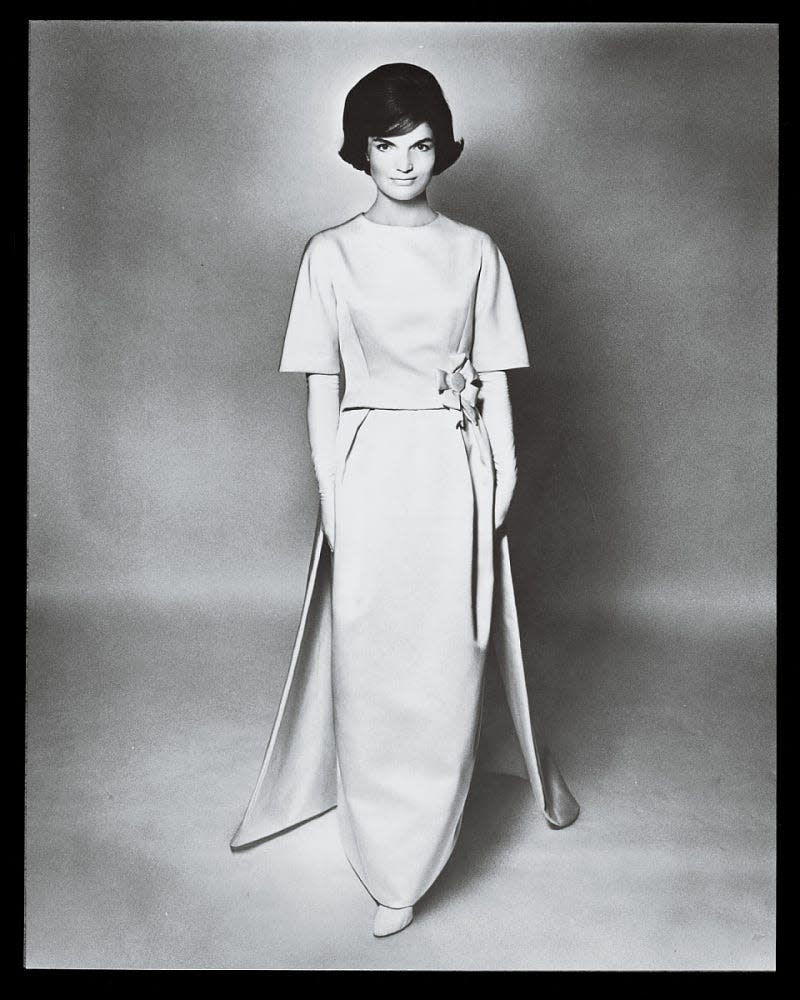Jacqueline Kennedy Onassis exhibit embodies American optimism, possibility

You don't have to a psychic — or even a Democrat — to know that the National First Ladies' Library's newest exhibit, "Beyond Camelot: The Life and Legacy of Jacqueline Kennedy Onassis," which starts this week, is going to be a huge draw.
Why?
Because she reminds us that something is missing from our current state of being, and we all know it.
Even in death, Jacqueline Kennedy Onassis embodies grace, elegance and other qualities which cannot be bought.
In 1960, the new presidential couple brought with them the light-filled promise of limitless possibility after the dark days engendered by a world war.
At just 31, Jacqueline Kennedy reintroduced Americans to the fine arts and a sense of style that transcended mere celebrity. She used her talent and taste to transform the White House itself into an homage to the nation's history.
Canton's 'hidden gem:' Five things to know about First Ladies Library CEO Patty Schmitz
In clear contrast to our naked-selfie, tell-all times, she valued privacy over publicity. Though she had a front-row seat to history, she never wrote a book. If anyone deserved to share their story, it was a woman who helped to reshape how America saw itself.
Instead, she taught us that silence has power, which is why 60 years later, she remains an object of fascination.
Her brilliance was in her soft power, wielded within the narrow parameters imposed upon women in the 1960s. Despite being as smart and capable as any of the Ivy Leaguers who made up the Kennedy administration — she's credited with helping JFK with writing and researching "Profiles in Courage" — she was unapologetic about making her husband and children her chief priority.
The people's right to know: The government should release JFK assassination files
We now know that she did so at a high cost, namely being humiliated by her husband's sexual escapades which were aided and abetted by friends and an enthralled White House press corps that was more complicit than inquisitive.
Given his chronic health problems and reckless infidelity, John F. Kennedy wouldn't get out of the gate to run for office today instead of in 1960. Then again, perhaps he would. We've mastered the art of situational ethics in which we triangulate ourselves like yogis to justify our choice of candidate.
At times, JFK lacked an empathy chip for the one person who mattered most. Once after she miscarried, it's said he was clueless as to why he needed to return home from a vacation to be by her side. It took his father yelling into the phone to drive home the point that, without her, his political career would be over before it began.
It will never be fully understood why she weathered the whispers, the rumors and the mistresses, the only possible clue being that she reportedly once said that life with Kennedy was far more interesting and exciting than it could ever have been within a conventional marriage.
People who knew them say JFK came to appreciate that she was his greatest asset and that in the fall of 1963, they were closer than ever, particularly after the death of their newborn son Patrick.
But they ran out of time.
As we know, Jacqueline Kennedy became more well-acquainted with grief in a way that few of us will ever experience.
In the horrific days following JFK's death, she became the nation's North Star. But because America had never seen anyone like her, we couldn't give her space, even in her unbearable sorrow.
Yet, she rejected the notion that her fatherless children were public property, or that she should live the rest of her days as America's widow. Though her own life was shattered, she strove to rebuild and shield her children from our insatiable and impudent demands to know more, ever more.
Usurping the memory of JFK: Charita Goshay: Rabbit hole is not a political identity
JFK's assassination, coupled with the murder of Sen. Robert F. Kennedy, may have driven her to make what may have been her biggest misstep, marrying Aristotle Onassis in the belief that his wealth could purchase the privacy she craved, though in reality, it only made matters worse.
In the end, she redefined her life by embracing her lifelong love of literature as a book editor. She never used her fame to sell things, but rather to preserve them, as in the case of New York City's Grand Central Station.
We remain fascinated by her story because we know that although she often has been imitated but never duplicated, there will never be another Jacqueline Kennedy Onassis.
Charita M. Goshay is a Canton Repository staff writer and member of the editorial board. Reach her at 330-580-8313 or charita.goshay@cantonrep.com. On Twitter: @cgoshayREP
This article originally appeared on The Repository: Jackie Kennedy Onassis exhibit embodies American optimism, possibility
